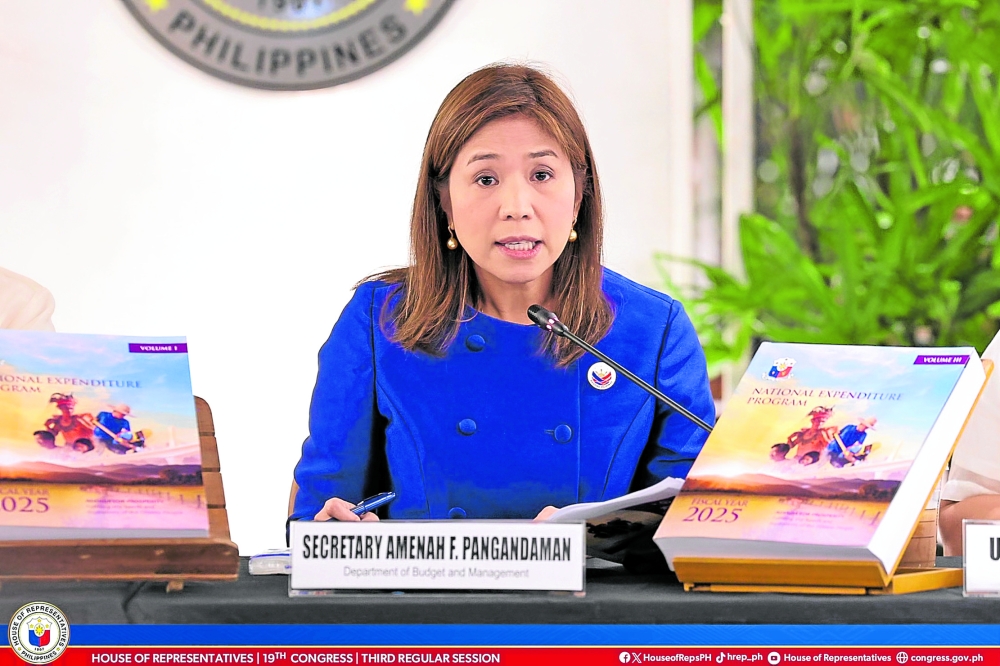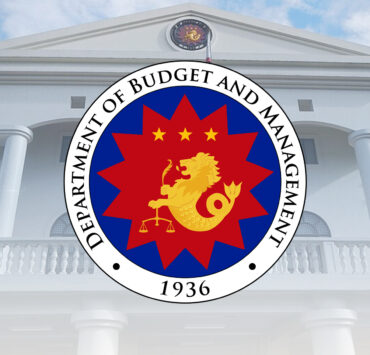Secret funds cut by 11%; bulk still goes to Office of President

The government slashed by 11 percent next year’s allocation for confidential and intelligence funds (CIF), with the country’s budget managers ensuring that these funds normally reserved for national security purposes only go to the appropriate agencies.
Based on the proposed P6.793-trillion National Expenditure Program (NEP) for 2026 that was submitted on Wednesday to both houses of Congress, the Office of the President (OP) will be receiving the lion’s share of the CIF, more than the amount allotted for the country’s main intelligence agency.
The Department of Budget and Management (DBM) proposed P10.77 billion in total CIF allocations, lower than this year’s P12.12 billion, Secretary Amenah Pangandaman said in a press conference.
More specifically, the DBM proposed a P6.39-billion budget for intelligence expenses and P4.36 billion for confidential funds next year.
No CIF for OVP
A breakdown of the proposed CIF for next year shows that the OP will get P4.5 billion, dwarfing even that of the National Intelligence Coordinating Agency, which will receive P1.141 billion.
The Office of the Vice President (OVP) under Sara Duterte has not requested for CIF for the second consecutive year since she was accused of misusing P612.5 million during her concurrent tenure as vice president and education secretary from 2022 to 2024.
An inquiry conducted by the House committee on good government during the 19th Congress found, among others, that the OVP disbursed confidential funds to beneficiaries with suspicious sounding names like “Mary Grace Piattos (combining the names of a restaurant and a potato chip brand),” “Marian Rivera (an actress),” and “Chel Diokno (a human rights lawyer and opposition figure).”
The panel’s findings partly served as the basis of the articles of impeachment endorsed by 215 House lawmakers against her in February, but which were ordered dismissed by the Supreme Court in July for supposedly violating the one-year bar rule.
Opaque nature
The Department of National Defense will be getting P1.848 billion in CIF, while other executive offices such as the Anti-Money Laundering Council, National Security Council, and the Philippine National Police will be sharing P2.292 billion among themselves.
Nueva Ecija Rep. Mikaela Suansing, chair of the House committee on appropriations, said the panel’s priority was to ensure that secret funds would go only to agencies that have the mandate to use them.
“We want to follow the general provisions in the NEP which states which agencies can handle CIF … but we would still have to discuss this further. It’s possible that there may be some agencies [whose CIF could] go down, some would go up, and we could only see that in the course of the deliberations,” she said.
Civil society watchdogs have long criticized the opaque nature of the CIF, which are lump-sum allocations typically exempt from standard auditing procedures supposedly in the interest of national security and law enforcement.
Budget breakdown
Overall, the 2026 national budget represents an increase of P466.84 billion or 7.38 percent compared to this year’s.
DBM data show that the proposed 2026 NEP corresponds to 22 percent of the country’s gross domestic product with the government giving priority to education, health care and social protection.
The largest chunk will go to education, at P928.5 billion, followed by public works at P881.3 billion, and health at P320.5 billion.
Allocations for the following departments are as follows: defense, P299.3 billion; interior and local government, P287.5 billion; agriculture, P239.2 billion; social welfare, P277.0 billion; transportation, P198.6 billion; judiciary, P67.9 billion; labor and employment, P55.2 billion.
In a broader scope, social services get the biggest slice, at P2.314 trillion. It is followed by economic services, P1.868 trillion; general public services, P1.202 trillion; debt burden, P978.7 billion; and defense, P430.9 billion.
Reforms
Before the formal turnover at the House, Speaker Martin Romualdez reiterated the reforms they will adopt such as the removal of the “small committee” tasked to collate institutional amendments, opening of the bicameral conference committee to public viewing, and allowing greater scrutiny of the NEP.
At the Senate, Sen. Sherwin Gatchalian, committee on finance chair, committed to ensure that no insertions will be made, particularly for Charter change and the Ayuda para sa Kapos ang Kita Program.
The Senate also adopted on Wednesday Senate Concurrent Resolution No. 4 that seeks to strengthen transparency and accountability measures in the passage of the national budget.
Under the resolution, budget documents are to be uploaded on both the websites of the Senate and the House so they can be easily accessed and the public may participate in the deliberations.
Gatchalian also said he would invite civil society and nongovernmental organizations, as well as budget experts to get their feedback, opinions and analyses. —WITH REPORTS FROM TINA G. SANTOS AND GABRIEL PABICO LALU

















